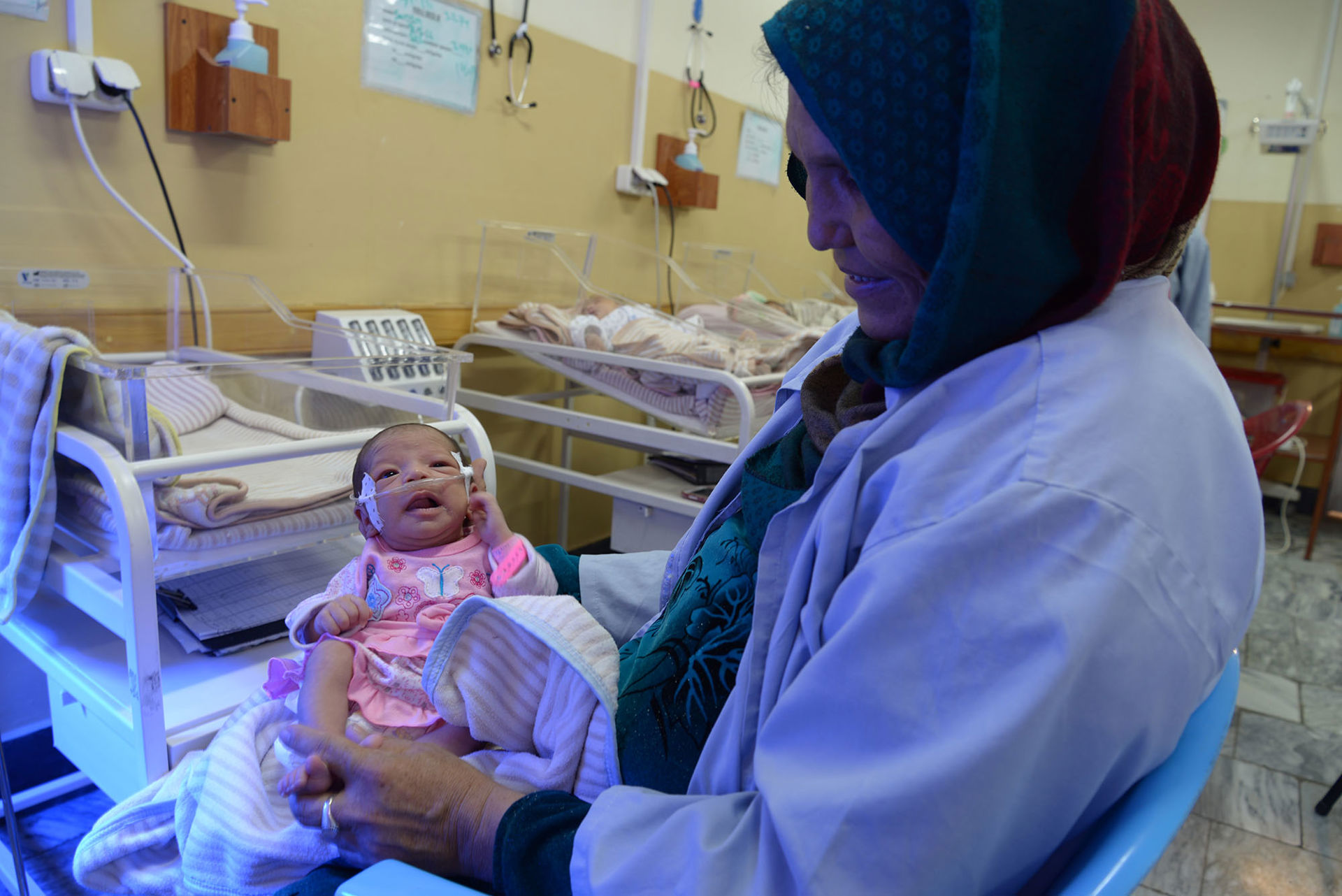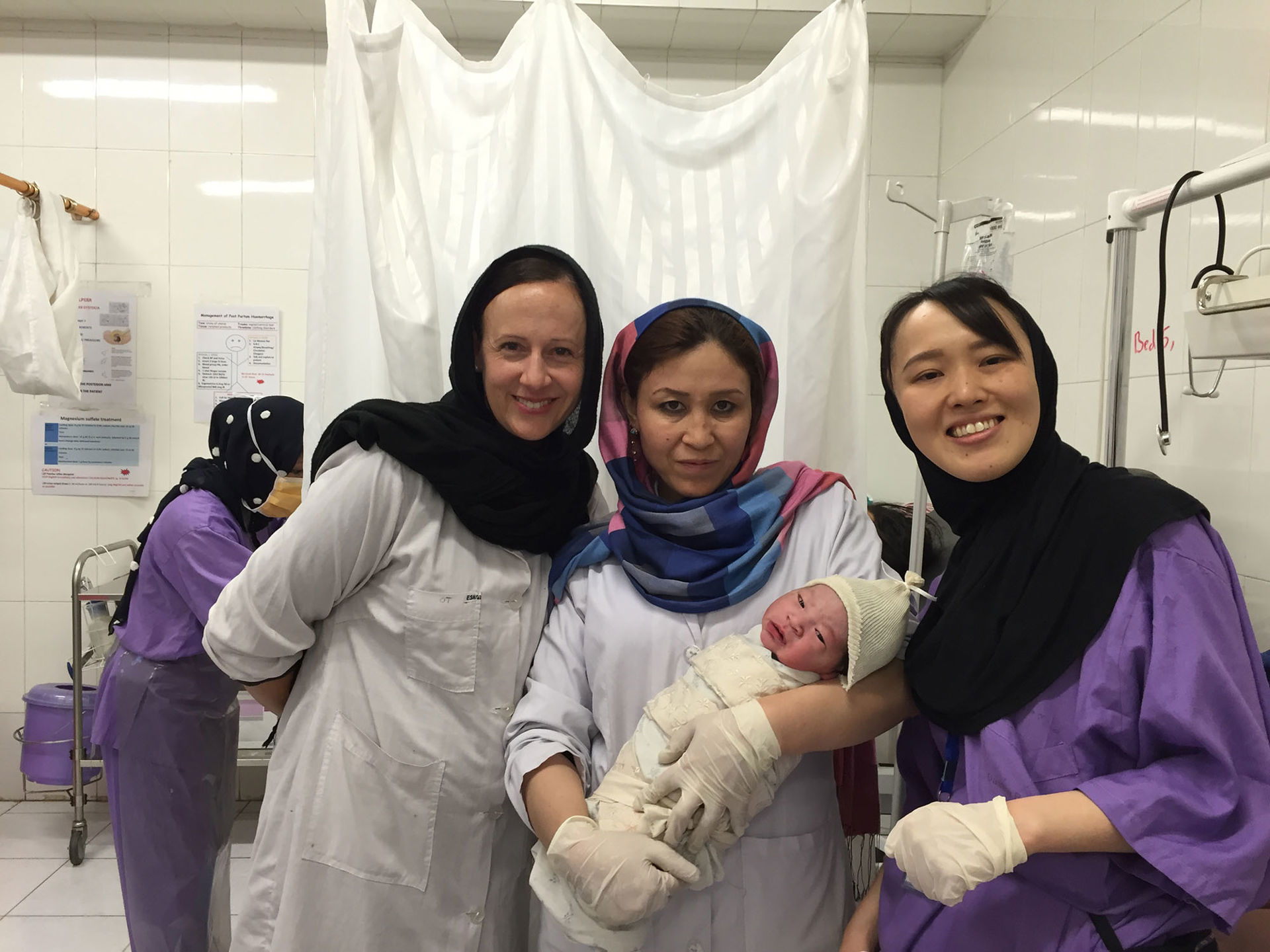Special care for sick newborns

A mother of eight holds her sick baby in the newborn unit in Dasht-e-Barchi. Her first seven children were born at home but now that Médecins Sans Frontières offers free maternal care, she decided to come to the hospital. © Aurelie Baumel/MSF
Médecins Sans Frontières’ newest emergency obstetrics and neonatal project is in Dasht-e-Barchi hospital, which opened in November 2014 in one of the poorest neighbourhoods of Kabul. Deliveries nearly doubled in the first year of activities. Médecins Sans Frontières manages a labour and delivery room, operating theatre, post-delivery services and a newborn unit for sick and at-risk babies. Antenatal and postnatal care is provided by the Afghan Ministry of Public Health.
Neonatal mortality remains high in Afghanistan at 36 deaths per 1,000 live births, so it is critical that sick or at-risk newborns receive the extra medical attention they require. An average of 111 newborns were admitted to the Dasht-e-Barchi neonatal unit each month in 2016, for conditions including clinical sepsis, hypoglycaemia and perinatal asphyxia. The newborn unit is equipped to care for babies who are very sick, arrive too early or are too small. As well as providing medical intervention as required, the unit also encourages ‘kangaroo mother care’ where the newborn is held skin-to-skin against the mother’s chest. This keeps the baby warm, protected from infection, and able to breastfeed regularly. Evidence shows that prolonged kangaroo mother care reduces mortality.
Helping mothers breastfeed

Kara Blackburn, left, with midwife (at the time) Aqila and Midwife Supervisor Etsuko in Dasht-e-Barchi maternity unit. © Ruth Molloy/MSF
“One of the key elements of postnatal care is providing support to help mothers breastfeed their newborns,” MSF Women’s Health Advisor Kara Blackburn explains.
“In Dasht-e-Barchi, women and their newborns are only staying with us post-delivery for a short period of time (just six hours, if they do have not any complications). On the one hand we need to free up beds and on the other hand, the women want to leave early. When the Hazara women we are treating go home, they are taken care of by family members during a traditional lying-in period.
But with the high volume of deliveries, over 40 per day, we have to be very careful that we are not discharging babies who have never taken a breastfeed.
Women only stay for about 30 minutes in the delivery room post-delivery, but the midwives are attempting to put each baby on the breast before the mothers move to the postpartum ward. The mothers are also carefully observed before the move, including checks that they are not bleeding. In the postpartum ward we have a little animated video on breastfeeding that we first created for Yemen, that has been translated into Dari. There is also a health promotion officer who goes around twice a day educating on breastfeeding, family planning and the signs of a sick baby.
It is ‘little things’ like breastfeeding that mean postpartum care is also a form of prevention. The team is working really hard on that, upskilling everybody. We know that the first 24 hours are really crucial; when you have women and babies leaving so early you need to make sure the important messages are being passed on, as well as having provided a safe delivery.”


